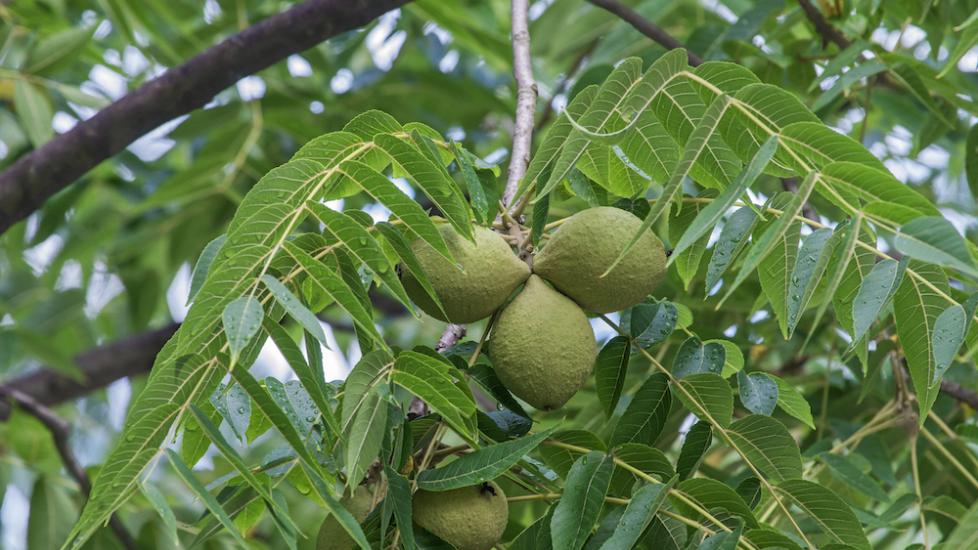Black Walnut Toxicity in Horses
What Is Black Walnut Toxicity in Horses?
The black walnut tree is a tall deciduous tree that can grow up to 100 feet tall. It has dark green leaves and a thick, ridged bark that is dark brown or black. The black walnut fruit, which is the nut, is round and about the size of a golf ball. It has a hard, thick shell that is difficult to crack and contains a sweet, oily kernel.
Black walnuts are found in many areas of North America and are commonly grown for their delicious nuts. However, these trees and nuts contain a chemical called juglone, which is toxic to horses and other animals, causing serious health issues that can be fatal if left untreated.
How Common Is Black Walnut Toxicity in Horses?
Black walnut toxicity is relatively rare in horses. However, if these trees are in a pasture where horses are, or in nearby areas, horses can easily pick up nuts or leaves. The toxin is most concentrated in the nut hulls, which can fall from the trees and pollute the surrounding area. Horses that consume feed, hay, or water contaminated with these substances can also become ill.
Black walnut shavings are sometimes used in bedding, which can be another source of danger; it’s important to evaluate the label on any new type of shavings you’ll be using to avoid this ingredient. If black walnuts shavings make up as little as 5% of the total bedding, that can be enough to cause a toxic event in some horses.
Symptoms of Black Walnut Toxicity in Horses
The symptoms of black walnut toxicity can vary depending on the amount of juglone ingested and the horse's sensitivity to the chemical. Symptoms can appear within a few hours to a few days after exposure and can include:
If left untreated, black walnut toxicity can be fatal. Horses that show any of the above symptoms should be seen by a veterinarian immediately.
How Long Are Walnuts Toxic For?
Juglone is present in all parts of the black walnut tree, including the leaves, bark, and nuts. All aspects of the plant can be harmful to an animal that ingests them. The soil where a black walnut tree has lived can even contain toxic properties for several months after removal. The walnuts themselves remain toxic for several weeks to a few months after falling from the tree. The bark must be left for six or more months and treated before being used to prevent potential juglone release.
Treatment of Black Walnut Toxicity in Horses
If you know your horse has ingested any part of a black walnut tree or its nuts, the first step is to remove them from the contaminated area and provide clean water and food. Call your veterinarian for an exam, who may administer medications to help with the symptoms, such as anti-inflammatories (Banamine), activated charcoal, or mineral oil to absorb the toxin and help it pass swiftly if the ingestion has been recent.
More intensive supportive care is needed if your horse is exhibiting symptoms of toxicity. This could include IV fluids, blood transfusions (severe cases), steroids, or other medications. If any secondary disease occurs such as colitis or laminitis, other treatment protocols may be implemented.
Prevention of Black Walnut Toxicity in Horses
Prevention is the best way to avoid black walnut toxicity in horses. Best practices include:
-
Check any new pasture or area your horse may be turned out when moving. If possible, have walnut trees removed and clear the area of nuts and hulls before allowing your horse out.
-
Having a nut gatherer can make nut and hull pick-up quick and easy.
-
If possible, horses should be kept away from black walnut trees and not allowed to graze under them. This may involve moving fence lines, or only turning horses out under supervision if removing the trees isn’t an option.
-
Do not use bedding containing black walnut shavings.
Featured Image: iStock.com/nickkurzenko
